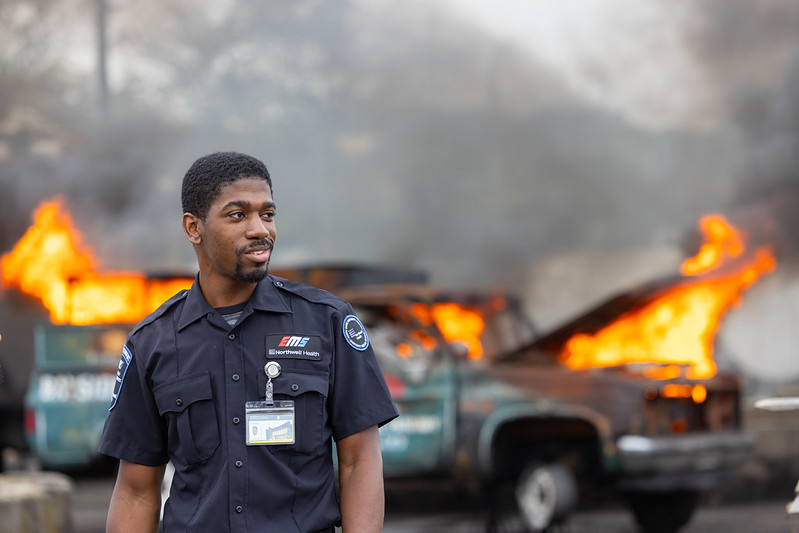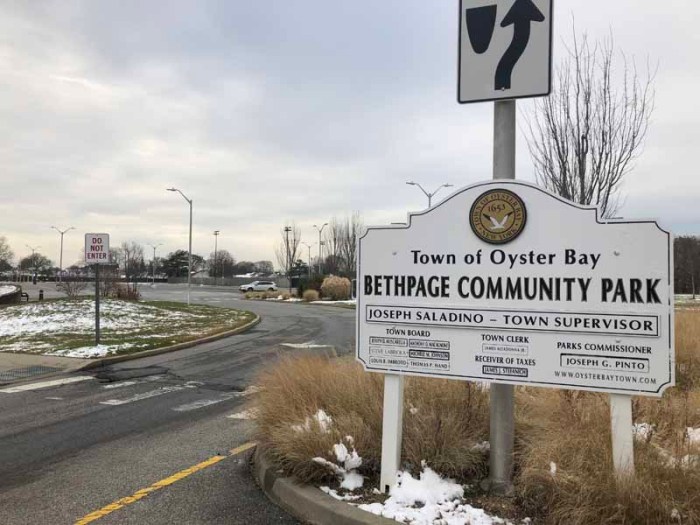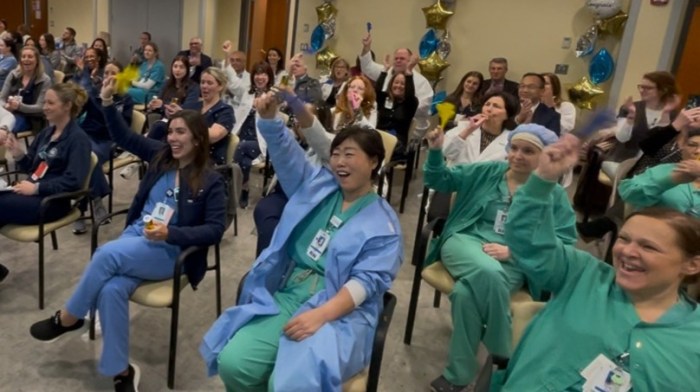One hundred first-year medical students from the Donald and Barbara Zucker School of Medicine at Hofstra/Northwell recently tested their emergency skills in a series of realistic disaster scenarios at the Nassau County Fire Service Academy (NCFSA) in Old Bethpage. This annual Mass Casualty Incident (MCI) Training Day, a culmination of eight weeks of EMT training, immersed the students in simulated disasters, including an active shooter scenario, a terrorist bus bombing, a train derailment, a car crash, and a hazardous chemical spill.
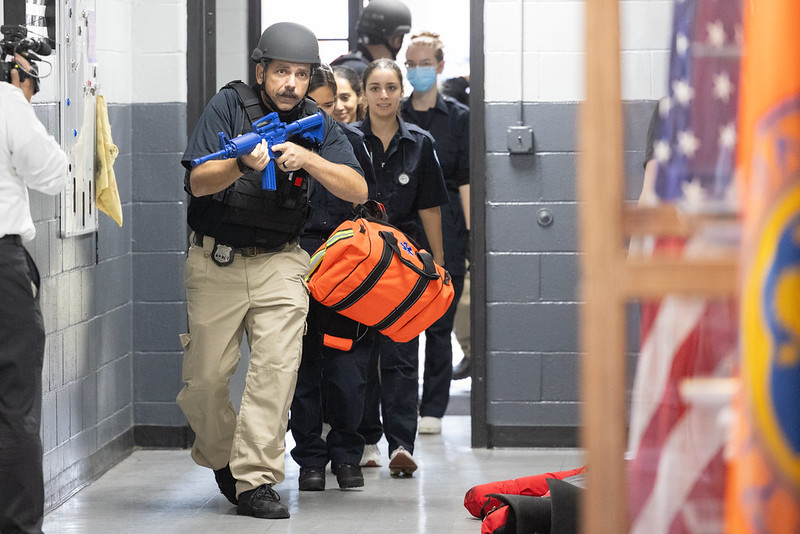
“This day is one of the most meaningful for our students in their journey as medical professionals,” Dr. David Battinelli, dean of the Zucker School of Medicine said. “Disaster training may not seem like it’s in the purview of doctors, but having the knowledge and skills will only benefit our students in their careers.”
Battinelli, who has advocated for EMT training as part of the medical school curriculum, emphasized the long-term benefits of this hands-on experience, added, “They are trained in fire safety, active shooter, and hazmat situations, making our students more well-rounded and better-prepared medical professionals.”
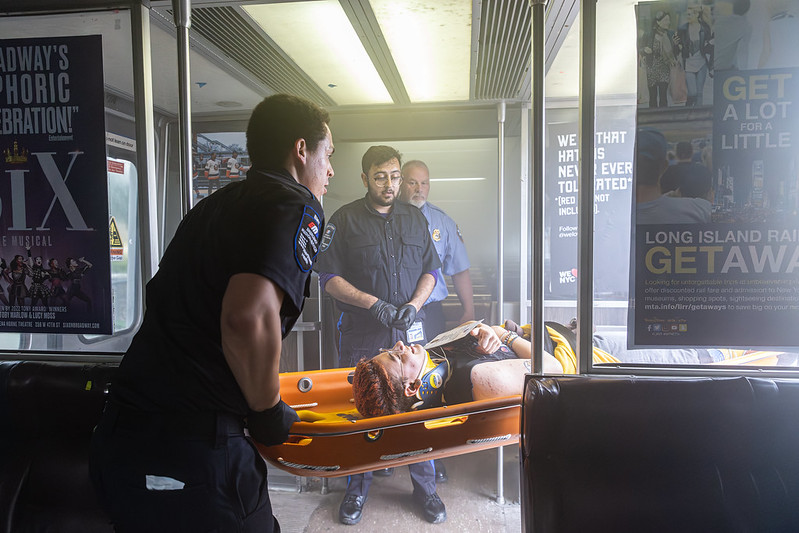
The training, conducted in partnership with the Nassau County Police Department’s (NCPD) division of Homeland Security, provided students with a unique opportunity to experience the challenges of mass casualty response in a controlled yet intense environment. Police officers offered protective support as students learned to approach victims in dangerous situations, triage injuries, and administer critical emergency care.
Under the guidance of seasoned first responders and medical trainers, the students rotated through five disaster scenarios. Each scenario was meticulously staged to resemble real-life conditions, with fire, smoke, darkness, sirens and the sounds of shouting and screaming meant to mirror the chaos of an actual mass casualty scene.
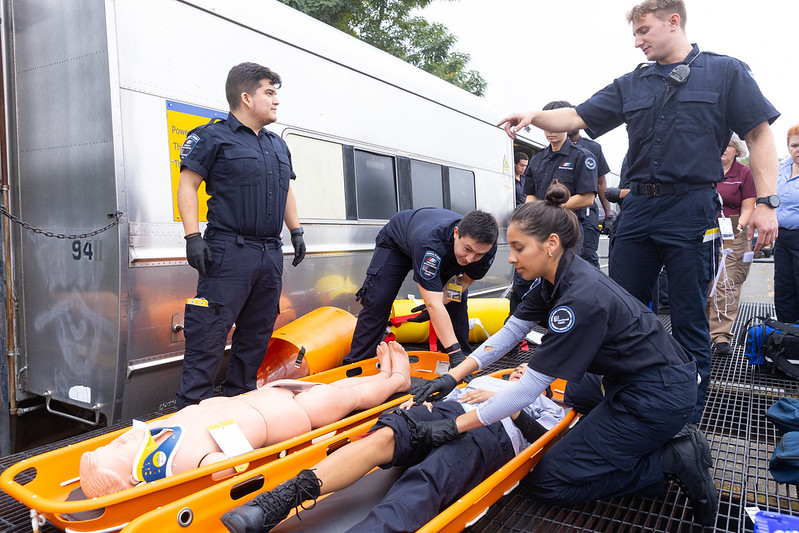
According to student Jordan Genece, a Westbury native, the experience was invaluable.
“It’s important for us to go through this experience and be able to work through these scenarios in a safe and simulated environment so that we know what to do in real life,” he said. “I feel good about this day because I know it will ultimately make us better doctors.”
The Zucker School of Medicine, which opened in 2011, was one of the first medical schools in the country to require first-year students to become certified EMTs. This pioneering component of the curriculum, facilitated by a partnership between Hofstra University and Northwell Health, has served as a model for other institutions across the United States. Students at Zucker begin EMT training on their first day of medical school, gaining early clinical experience as they accompany Northwell Health’s extensive ambulance network, one of the largest hospital-based systems in the nation, to answer calls across a diverse patient population.
During MCI Training Day, first-year medical student Claudia Rodriguez from San Antonio found the simulated patient role particularly insightful.
“I didn’t expect we would be acting as patients and carrying our classmates out of the disaster scenarios,” Rodriguez shared. “Because of our early clinical experiences, I expected our patients today to be all mannequins. However, this was to our benefit, as we got to see what it was like to act as patients and work with ‘real-life’ patients.”
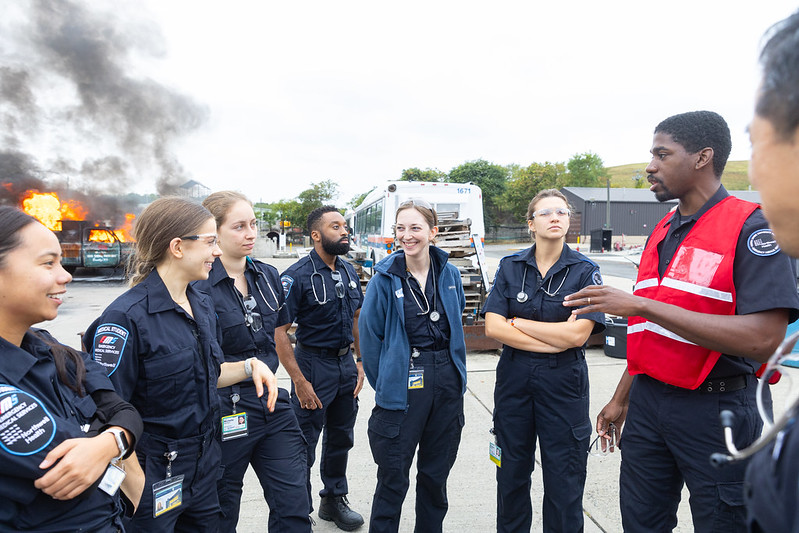
She emphasized that the experience helped her understand the patient’s perspective and said, “This day has taught me how to stay calm and work through a high-pressure situation.”
The training not only benefits the students but is also a valued experience for the NCFSA. Paul Wilders, chief instructor at the Fire Service Academy, remarked on the program’s impact.
“This is our third year hosting MCI Day, and I look forward to it every year. Our instructors love it, and the students get a lot out of it. The more I watch the students learn, the more it’s enjoyable for me,” Wilders said. “This year’s group of students was very dynamic. They came here fired up and ready to go. At each station, they went through and cleared the scene, developed a treatment plan, and thoroughly triaged all of their patients. This is what the day is all about; putting learning into action.”
Battinelli expressed pride in the students’ readiness to respond in emergencies, saying, “We are proud to see our students embracing these challenges. As EMTs, they have already begun to gain critical clinical experience, and as future doctors, they will bring added value to their patients and their communities.”
With MCI training and other hands-on experiences, the Zucker School of Medicine is preparing a new generation of physicians who are equipped to respond swiftly and effectively to emergencies.




